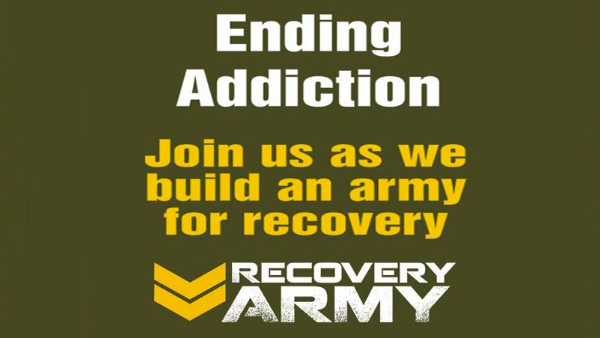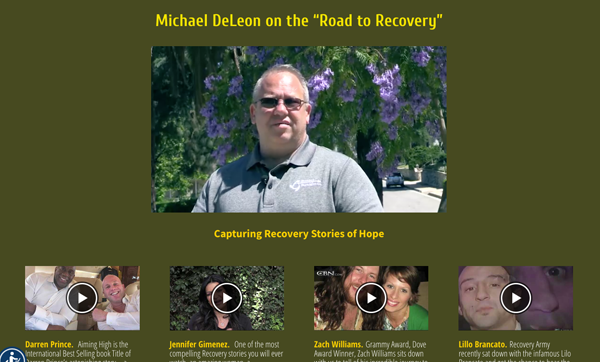
“There are two types of pain; one that hurts you and one that changes you.”
My name is Michael DeLeon, CEO and founder of a nonprofit prevention organization called Steered Straight. I am the No. 1-booked drug prevention lecturer in U.S. schools. I am an ex-offender, recovered addict, former gang member and now a national leader in prevention and addiction, recovery advocacy and criminal justice reform.
I make Middle Tennessee my home, my base, and it has become ground zero for our prevention efforts to the youth and families of America.
I have written this Murfreesboro Pulse article series for the past six months describing many of the issues that are impacting America through the systemic attack on youth. Make no mistake, that’s what the “Covid crisis” has become—a collateral attack, albeit an unconscious one. Purposefully or collaterally, youth are the demographic that will be hurt the most and will never be the same. Much of what has happened is unseen and certainly not discussed. The media is barely touching upon it and it escapes the mainstream narrative, but nothing is more important than our youth.
Emergency room non-injury visits for youth are up 24 percent for ages 7 to 14; that jumps to 34 percent from ages 10 to 17. There is a mental health crisis festering up in our kids and it is becoming a burgeoning emergency for which America is ill prepared, but one that we are going to have to fix.
I am recovered from addiction for 18 years in May. I work with as many people still struggling with addiction and those in recovery from that struggle as I do with kids. Our work at Steered Straight is with both sides of the pandemic spectrum. I can tell you with 45 years of personal experience that addiction has its origin in adolescence. It’s an accepted truth. Very few people find addiction anew in their adult years. It begins, 90 percent of the time, between the ages of 10 and 17. Much of that origin is made with trauma and threaded with isolation and loss of connection—much of what is threading this COVID crisis for children. In fact, I take suicide crisis calls seven days per week. A year ago, I was talking to three or four kids on a bad week. Now it’s five or six on a nightly basis. It’s a very real crisis.
Steered Straight spends every day educating people about how to enhance protective factors in their children. We provide the best drug education in America and support that with curriculum and continuing education that is available to students, parents, educators and community members. Education is the key to navigating through the collateral damage which will inevitably be something many families face, although most don’t expect to be “that family” because most parents believe that it “won’t be their kid.” Having interviewed more than 1,000 recovering addicts and more than 500 parents who have lost their children to an overdose or a suicide, I can tell you that virtually no one thought it was going to happen to them.
When I embraced my mission to become part of the solution instead of part of the problem, I had no idea where the journey would take me. In 2010, I had lost four young adults on my counseling caseload to drug overdoses, and it was some of the worst pain I had ever experienced. They were certainly not my biological children and in no way can the pain and loss I experienced be compared to their family’s pain and loss, but it shook me to my core. I felt I had failed them miserably. As their counselor, I felt that I could’ve done more. I was already working in prevention and advocacy at the time, trying to bring people together in various aspects of this fight, but I couldn’t have imagined then how that pain was going to change me.
The proverbial “War on Drugs” was in reality, a war on drug addicts, not on drugs. It created a prison industrial complex in America as we ballooned our state and federal prison systems from a little more than 400,000 prisoners in 1980 to over 2.4 million in 2020. Not to mention county jails, correctional programs, community programs, treatment programs, probation, parole, drug courts . . . It’s an escalating problem with catastrophic results.
Handcuffs and prison personally saved my life. We need jails and prisons. Sometimes, the threat of criminal consequences can be the catalyst to urge an addict to take that first step—that “Nudge from the Judge.” But locking people up in and of itself doesn’t rehabilitate. Incarceration for addiction or for committing an addiction-related crime without treatment is futile, yet this modality permeates the criminal justice system. That has to change.
Most of the current news about the “opioid pandemic” was dismal. Now it’s become the “pandemic” everyone forgot, but it’s festering worse than ever right underneath the one everyone is talking about. Just in the last year, overdose death across America is up as much as 35 percent, and 2019 was the worst year in history. I predict more than 100,000 overdose deaths this year. I hope I’m wrong, but according to the CDC, the 12 months that ended May 2020 exceeded 81,000, the highest number of overdose deaths ever recorded in a 12-month period. With a year of continued societal isolation and livelihoods destroyed, the pace of fatalities now is unfortunately worse.

It’s irrefutable that America finds itself in the middle of the worst public social addiction crisis in its history. More people are dying from an overdose to drugs and suicide than ever before. More people are being affected. More families are being affected. But is it even discussed?
Within all the numbers and statistics, within the loss and family tragedy, there are real stories of survival. There are people who have battled their addiction and won. It’s been estimated that there are more than 23.5 million Americans in recovery from addiction. Millions and millions of men and women have overcome their addictions. The more we show those who struggle the truth about those who struggle no more, the more we will inspire people to find their road to recovery. It is hope!
Recovery is happening all around us, and I set out to capture those stories that only those survivors could tell. Not the war stories and the horror stories, but the overcoming of those horrors and the many tales of success. I began a television talk show on recovery in the Philadelphia market before moving to Tennessee and it lasted five seasons. I took the show on the road and captured hundreds more stories of hope and strength collectively called The Road to Recovery. I was able to share people’s stories, family struggles, expert opinions and the up-side of down. These stories are shared at recoveryarmy.com and I urge you to watch some of them. I urge you to share them with everyone you know, because everyone you know knows someone that is struggling right now. You don’t have to admit it, but it’s true. There are people in long-term recovery who are struggling with their lives and with their sobriety. There are people in early recovery struggling with their lives as well. There are people caught in the grips of alcoholism and drug addiction who need to find some hope. Sometimes you must find some hope in other people in order to find the hope within.

That is what these stories can do—help people see hope. Isn’t that what we all need right now? Please visit recoveryarmy.com to get some hope, and then share that hope with everyone you know.
Many people believe that the “War on Drugs” was a failure. I knew we needed a new “war” and it needed to be a war on addiction, not on drugs or on addicts. And we needed a new “army,” a Recovery Army. I was determined to build this Recovery Army and I set out to do just that. I wanted to recruit people into this army and I knew that the best way to do it was to go out there and build it. So, I worked incessantly over the past year through this COVID crisis to capture as many people’s stories of recovery and hope as possible.
I want to capture the beautiful stories of recovery across Tennessee and across America. I want to share these stories with those who are still struggling. I want to push advocacy efforts further than they have ever been pushed before. I want to bring prevention efforts into schools everywhere. I want to make the biggest difference I could ever make. Above all, I want to bring everyone together. This pandemic is no longer a war we can fight while splintered and siloed. We can only fight it side by side, together, in unison, united!
___
Join the Recovery Army. Help us reach more people. Go to our website and get involved. Call us if you have a story to share, some hope to share. Visit us at Steered Straight Thrift Store in Murfreesboro and help support our mission, either monetarily, or with donations to our nonprofit operation. It will take all of us to turn the tide on this American pandemic.













